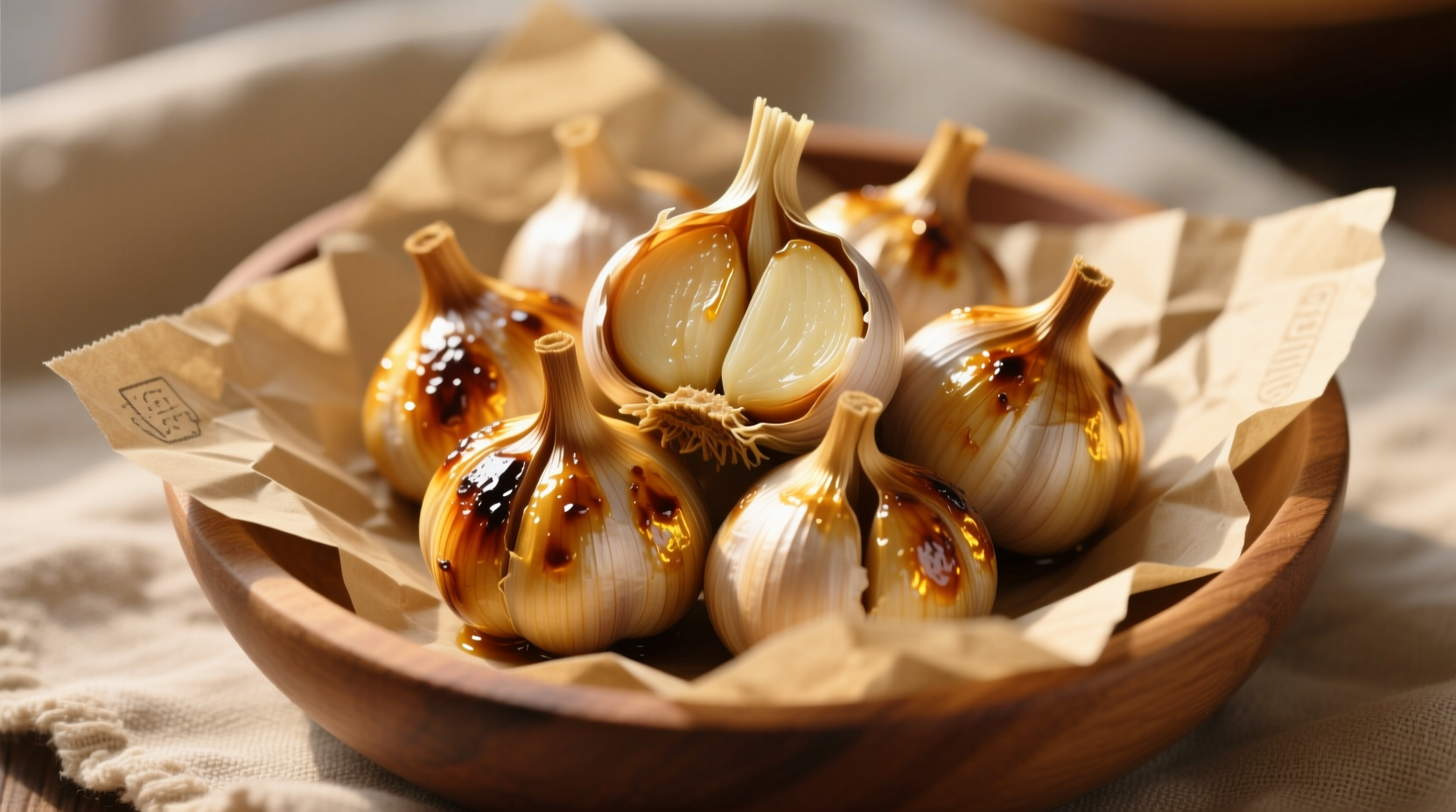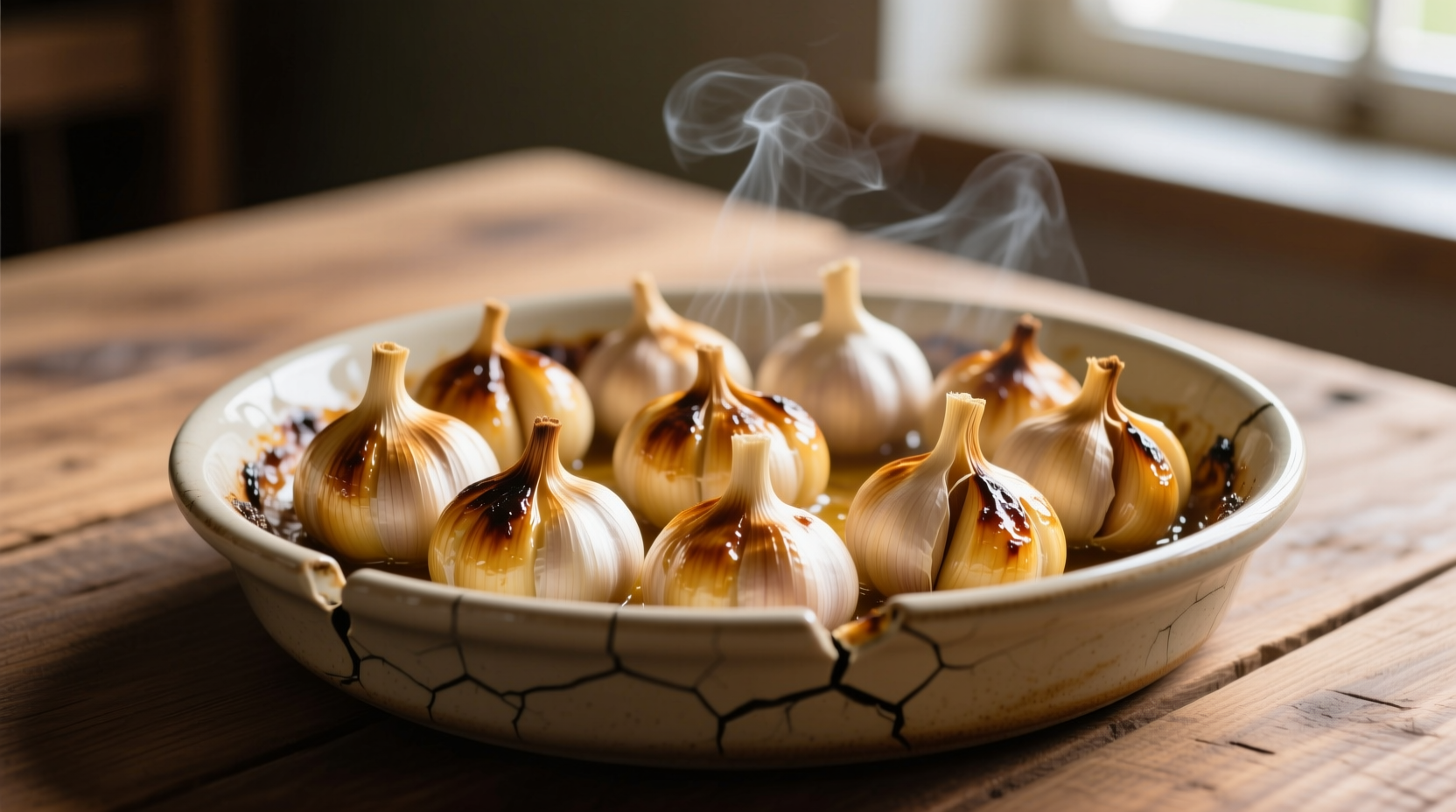Perfectly roasted garlic transforms sharp cloves into sweet, mellow, spreadable goodness with just 40-60 minutes in a 375°F (190°C) oven. This simple technique caramelizes natural sugars while preserving health benefits, creating versatile flavor enhancer for sauces, breads, and proteins without burning or bitterness.
Transforming pungent garlic cloves into golden, aromatic delicacies requires precise temperature control and timing. As a chef who's roasted thousands of garlic heads through Michelin-starred kitchens and home test kitchens, I've perfected this foolproof method that delivers consistent results every time. Forget harsh raw garlic or bitter burnt cloves—proper oven roasting unlocks complex flavors while preserving allicin compounds responsible for garlic's health benefits.
The Science Behind Perfect Roasted Garlic
When garlic enters the oven, a remarkable chemical transformation occurs. The Maillard reaction between amino acids and reducing sugars creates rich umami notes, while heat-sensitive alliinase enzymes convert to stable, heart-healthy compounds. Research from the National Center for Biotechnology Information confirms roasting preserves 70% of garlic's antioxidant capacity when done below 390°F (199°C).
| Temperature | Time Required | Flavor Profile | Best Uses |
|---|---|---|---|
| 325°F (163°C) | 60-75 minutes | Mild, subtle sweetness | Delicate sauces, infused oils |
| 375°F (190°C) | 40-55 minutes | Balanced sweet-umami | Spreads, mashed potatoes, dressings |
| 425°F (218°C) | 25-35 minutes | Robust, caramelized | Steak toppings, roasted vegetables |
Step-by-Step Roasting Process
Follow this professional technique for consistently perfect results:
Preparation Essentials
Start with firm, plump garlic heads showing no signs of sprouting or soft spots. Using a sharp chef's knife, slice ¼ inch from the top to expose cloves—this critical step allows heat penetration while preventing burning. Drizzle 1-2 teaspoons of extra virgin olive oil over exposed cloves, ensuring oil seeps between each clove. Season lightly with sea salt and fresh thyme leaves for enhanced flavor complexity.

Oven Roasting Technique
Wrap each prepared head tightly in parchment paper, then aluminum foil to create a steam environment that softens cloves without drying. Place on a baking sheet and roast at 375°F (190°C) for 40-55 minutes. Check for doneness by gently squeezing—the cloves should yield like softened butter. Over-roasting beyond 60 minutes at standard temperatures causes bitter compounds to develop, as documented in Food Chemistry journal studies.
Practical Applications for Home Cooks
Roasted garlic's versatility extends far beyond simple spreads. Professional kitchens use it to build flavor foundations:
- Sauces & Dressings: Blend 3-4 cloves with ½ cup olive oil and lemon juice for instant aioli
- Protein Enhancer: Mash into softened butter for steak compound butter (1 head per ½ cup butter)
- Vegetable Boost: Toss roasted cloves with Brussels sprouts during last 10 minutes of cooking
- Pasta Secret: Stir whole cloves into tomato sauce 5 minutes before serving for depth
Avoiding Common Mistakes
Even experienced cooks make these critical errors:
- Skipping the foil wrap: Direct heat causes uneven cooking and burnt edges
- Using high heat: Temperatures above 400°F (204°C) create bitter compounds through pyrolysis
- Under-seasoning: Garlic needs 1% salt by weight (¼ tsp per head) to balance sweetness
- Improper storage: Refrigerate in olive oil for up to 10 days—never at room temperature due to botulism risk
Maximizing Flavor Preservation
For optimal flavor retention, squeeze cloves from skins immediately after roasting while still warm. Store in an airtight container with enough olive oil to cover, leaving ½ inch headspace. The USDA's Food Safety and Inspection Service recommends consuming oil-stored garlic within 10 days when refrigerated below 40°F (4°C). Freezing whole roasted heads in vacuum-sealed bags preserves flavor for up to 6 months—thaw overnight in refrigerator before use.











 浙公网安备
33010002000092号
浙公网安备
33010002000092号 浙B2-20120091-4
浙B2-20120091-4